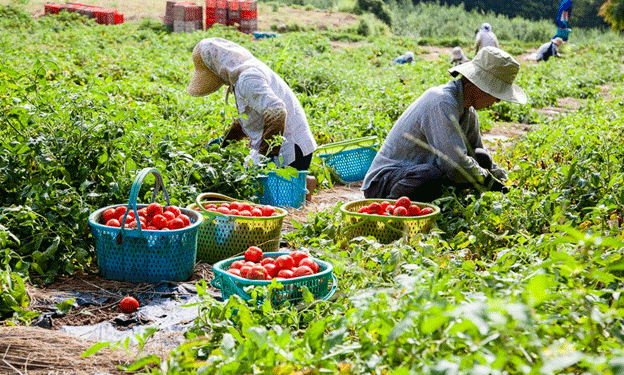The production of processing tomatoes is crucial to the agricultural landscape in Japan, particularly in Nagano Prefecture, where the local climate and soil conditions are ideal for growing high-quality tomatoes. However, the industry faces significant challenges, including an aging farmer population, a decline in the number of producers, and competition from cheaper imported raw materials. To combat these issues, the Planned Labor Participation initiative, which began in 1995, has emerged as a vital support mechanism for local farmers.
Over the past 30 years, this initiative has mobilized over 3,210 participants, helping farmers with labor-intensive tasks such as planting and harvesting. Each year, community members join farmers during peak seasons, not just as volunteers but as compensated workers. This innovative model ensures that the labor burden is shared and that production remains sustainable.
The Structure of Planned Labor Participation
During the recent 30th Anniversary Celebration held on October 11, 2024, in Nagano City, representatives from various organizations reflected on the successes and challenges faced over the years. The event marked a milestone in the initiative’s journey and featured discussions on future directions. Notable attendees included executives from JA Nagano, Nagano Agricultural Cooperative, and Snow Brand Milk Products, who collectively affirmed their commitment to sustainable practices in tomato production.
The event highlighted the significant role of community participation in cultivating and harvesting tomatoes. The labor participation is not merely a form of volunteering; participants are paid for their work, which is factored into the cost of Shinshu Tomato Juice (salt-free and salted varieties). This unique system allows consumers to indirectly support local agriculture by purchasing tomato juice.
Addressing Challenges and Future Directions
The processing tomato industry faces ongoing challenges, including:
- Labor Shortages: With many farmers aging and fewer young people entering the industry, the labor pool is diminishing. Initiatives like Planned Labor Participation are essential to fill this gap.
- Production Costs: Rising production costs combined with competition from imported tomatoes necessitate innovative approaches to maintain profitability for local producers.
- Consumer Awareness: Educating consumers about the value of supporting domestic products and sustainable practices is crucial for the continued success of this initiative.
As the industry moves forward, stakeholders emphasize the need to continue fostering a strong connection between producers and consumers. The collaborative efforts of farmers, agricultural cooperatives, and consumers will be critical in sustaining the future of processing tomato production in Nagano.
The Planned Labor Participation initiative serves as a successful model for sustainable agriculture, illustrating how community involvement can bolster local production and address labor shortages. By celebrating 30 years of cooperation, Nagano’s stakeholders reaffirm their dedication to sustainable practices that not only support local farmers but also promote a healthier agricultural economy.











